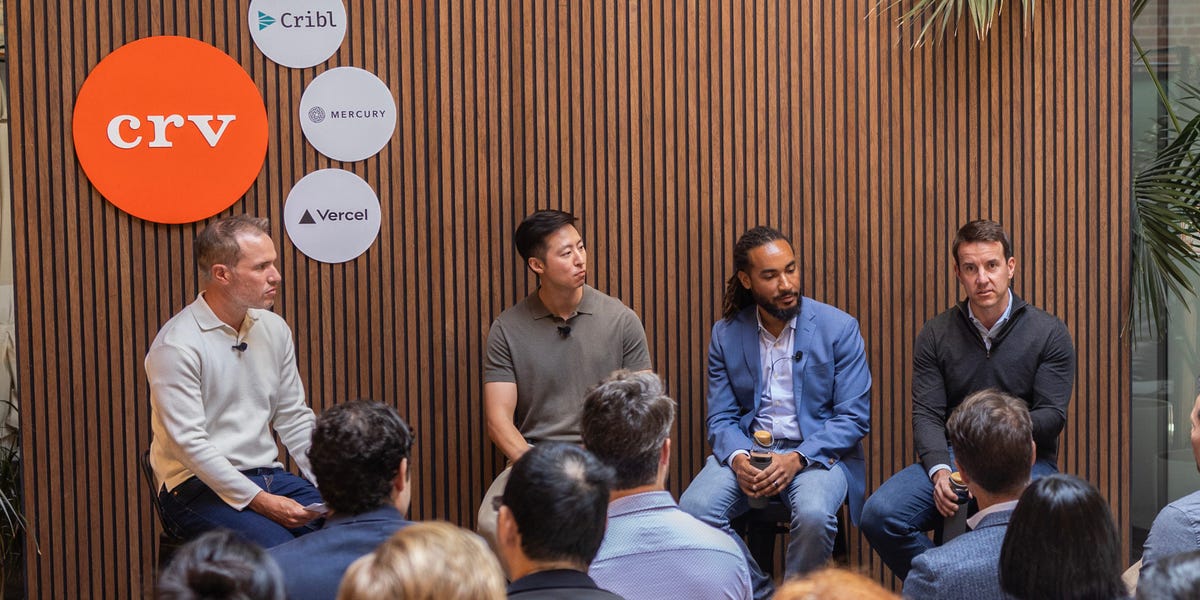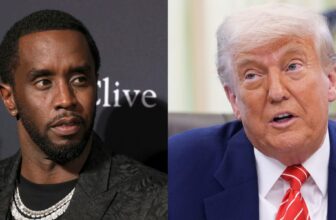
Take a look at our newest merchandise
With a shaky IPO market, tariff uncertainty, and inventory market jitters, these aren’t straightforward occasions to be the chief monetary officer of a late-stage tech firm.
In opposition to that precarious backdrop, I sat down final week with the CFOs of Mercury, Vercel, and Cribl on the San Francisco workplace of CRV, one in every of Silicon Valley’s oldest enterprise corporations and an early investor in all three startups.
“I am anticipating much more uncertainty,” stated Daniel Kang, CFO of Mercury, a fintech banking startup that lately doubled its valuation to $3.5 billion after elevating $300 million in its newest funding spherical. “There’s numerous impression from what’s occurring in DC.”
All of the turmoil means CFOs need to be extra nimble, stated Kang.
Marten Abrahamsen, Vercel’s CFO, was extra upbeat. He doesn’t anticipate a recession this yr and predicts a inventory market rally within the fall.
“I believe numerous that is going to be fueled by a number of the investments we see in AI, and we’re already seeing it for a few of our merchandise that weren’t even right here a yr in the past,” stated Abrahamsen. “I am very, very bullish on the rest of this yr and past.”
After President Donald Trump introduced sweeping tariffs on imports from different international locations on April 2, buyers panicked and firms from the funds lender Klarna to the bodily remedy startup Hinge Well being halted their IPO plans.
The pause turned out to be short-lived.
Markets have rebounded after Trump rolled again essentially the most extreme tariffs and he stated he wouldn’t hearth Federal Reserve Chair Jerome Powell. Bankers are telling firms to go public whereas the window is open.
This week, Hinge Well being shares jumped 17% in its market debut after eToro, an Israeli buying and selling platform, made a profitable public debut on the Nasdaq, opening 34% above its IPO worth. (Klarna’s IPO continues to be on maintain after the corporate reported mounting losses.)
Abrahamsen doesn’t assume firms ought to wait till a greater market comes alongside to IPO; as a substitute, they need to give attention to what they’ll management.
“There was a concern of going public in Silicon Valley,” he stated. “Nice firms can go public even when there’s not a sizzling market on the market. For those who’re an excellent enterprise, there’s all the time going to be a chance.”
Requested why so few firms are going public, the panelists stated firms don’t wish to cope with the complications of being a public firm when there may be a lot non-public financing accessible. There’s additionally little stress to IPO from buyers and staff, in accordance with Zachary Johnson, CFO of Cribl, an information administration options startup that raised $319 million final yr at a $3.5 billion valuation.
“They perceive that we’re attempting to construct one thing that is going to be generational,” stated Johnson. “Once we take into consideration how we wish to construct this firm, it is actually about specializing in that sturdiness and sustainability of progress.”
Johnson is hopeful that advances in AI could make Cribl much more enticing to buyers when it goes public. He lately tasked everybody on his government group to provide you with an AI initiative.
“There’s some work to be executed, however I am optimistic that we will truly get some actual returns on that by the top of this yr,” he stated. “We’re nonetheless within the early innings of AI.”

![[Windows 11 Pro]HP 15 15.6″ FHD Business Laptop Computer, Quad Core Intel i5-1135G7 (Beats i7-1065G7), 16GB RAM, 512GB PCIe SSD, Numeric Keypad, Wi-Fi 6, Bluetooth 4.2, Type-C, Webcam, HDMI, w/Battery](https://m.media-amazon.com/images/I/71LYTzK2A8L._AC_SL1500_.jpg)



![[UPDATED 2.0] Phone mount and holder compatible with Samsung Z Fold 2 3 4 5 6 Pixel Fold or Foldable phone | bicycle, treadmill, handlebar, elliptical, stroller, rail, handle, roundbar, golf cart](https://m.media-amazon.com/images/I/51CjGlidGRL._SL1023_.jpg)








